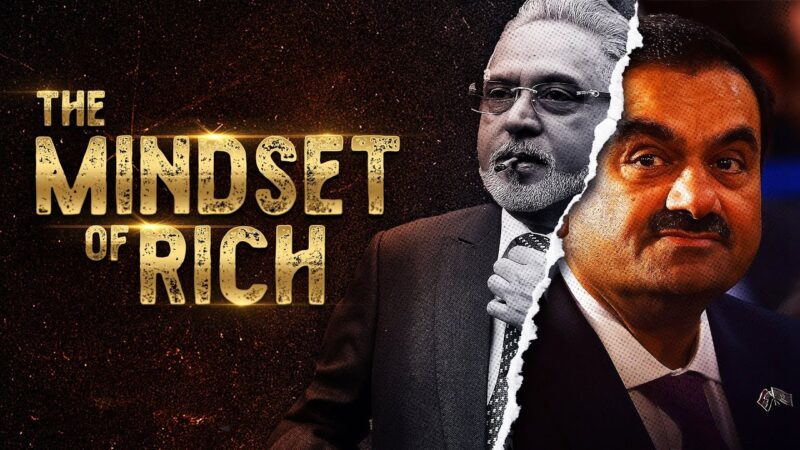Introduction

Have you ever wondered why some people seem to attract money and opportunities, while others work just as hard—and still feel stuck? It often comes down to mindset. Specifically: what rich people think about money that most don’t — and how you can adopt it. This isn’t just about having more cash; it’s about thinking differently, acting differently, and aligning your beliefs about money for long-term results.
In this article we’ll explore the core beliefs and behaviours that wealthy individuals often share, compare them with more common money mindsets, and show you how to start incorporating those shifts into your own life. Think of it as a friendly, conversational deep dive into your money brain. rich people think about money.
Why “what rich people think about money” matters
Powerful Guide: Negotiate lower interest rate on personal loans UK 1.
You might assume that rich people simply have more money, better jobs or lucky breaks—and in some cases that’s true. But research on wealth mindset emphasises that how people think about money plays a major role in how they accumulate and keep wealth. For example, one article on rich vs poor mindset describes how “the rich have understood a very simple principle: money makes money, and the money that money makes, makes money.” (novamoney.com)
These mindset differences aren’t superficial—they shape how people use opportunity, manage risk, allocate time and invest. If you adopt even a few of these ideas, you’ll likely find yourself seeing money and opportunity in new ways. rich people think about money.
Key beliefs: What rich people think about money
Below are some of the core beliefs that many wealthy individuals hold. Each belief is paired with how most people tend to think—and how you can adopt the richer perspective.
1. Rich people think in terms of assets and net worth, not just income
- Most people focus on how much they earn.
- Rich-thinking individuals focus on what they own and what their liabilities are (i.e., net worth) over time. One summary states: “Rich people focus on their net worth; others focus on working income.” (Medium)
Adopt it: Start tracking your net worth monthly. Notice what you own (investments, business, property) minus what you owe. Shift the questions: “How can I increase what I own?” rather than “How much more can I earn right now?”
2. Rich people view money as a tool to create more value
- Instead of seeing money solely as something to spent, they see it as something that can generate.
- For instance, rich mindsets understand that “money makes money… the rich make their money work for them.” (novamoney.com)
Adopt it: Ask yourself: “Where can I deploy money to create income or value?” This could mean investing, starting a side business, or buying an asset rather than a depreciating item.
3. Rich people focus on possibilities and opportunities, not just problems
- Many people react to problems: “How will I cover this expense?”
- Rich-thinking people ask: “What opportunity arises from this change or challenge?” An article notes: “The wealth mindset sees challenges as a way to grow and learn.” (Medium)
Adopt it: When you face a setback or uncertainty, train yourself to ask: “What can I learn? What new path opens?” You gradually shift from scarcity or fear to curiosity and growth.
4. Rich people adopt an internal locus of control — they believe they influence outcomes
- Instead of blaming outside circumstances (“It’s because of the economy,” “I had bad luck”), they ask: “What can I do?”
- One expert argues this is a major difference in mindset. (The Art of Manliness)
Adopt it: Replace “why is this happening to me?” with “what can I do about this?” When you believe you have agency, you make more strategic choices.
5. Rich people invest in themselves and their knowledge
- They believe that their skills, habits and mindset are worth money and effort.
- Poorer mindsets often assume education ends with school; rich mindset assumes lifelong learning. (New Trader U)
Adopt it: Budget for continuous growth—reading, courses, networking. Treat it not as cost but as investment.
Powerful Steps: First-Time Job Salary in the US — What You Must Set Aside Before It’s Too Late 1.
Table: Comparison of Money Mindsets
Here’s a clear contrast between rich-thinking mindsets and more common mindsets, so you can see where you might be aligning and where you might want to shift.
| Belief/Focus | Common Mindset | Rich Mindset |
|---|---|---|
| Goal of money | Earn more income | Build net worth and assets |
| Money usage | Spend what income allows | Use money to generate value and income |
| Reaction to change/obstacle | Avoid or fear | Explore, adapt and seek opportunity |
| Perception of control | “Life happens to me” | “I influence my outcomes” |
| Learning & growth | One-time schooling | Lifelong learning and skill development |
| Focus | Short-term survival | Long-term strategic growth |
Seeing yourself in the “common mindset” column isn’t a failure—it’s simply a cue that you might benefit from adjustments.
How you can adopt what rich people think about money
Understanding these beliefs is useful—but the real value is in adopting them. Here’s a practical roadmap:
Step 1: Self-reflection
- Write down your current money beliefs: How do you feel about income? Investing? What does money represent to you (security, pleasure, status)?
- Identify any limiting beliefs: “I’ll never have enough,” “Money is for others,” “I’m not good with money.”
Step 2: Choose one mindset to shift this month
- For example: Shift from “I must earn more” to “I must build assets.”
- Or: Shift from “Money is to be spent” to “Money is to be invested.”
Pick one and commit to actions aligned with it.
Step 3: Action plan
- Create or review your net worth statement.
- Allocate a portion of your income monthly to invest or acquire an asset.
- Set a goal of learning: read a book or take a course about investing/wealth mindset.
- When faced with a financial decision, ask: “Does this build value (long-term), or just cost today?”
- Surround yourself with people or content that embody growth mindset—rich mindset is influenced by environment.
Step 4: Monitor and adjust
- Monthly: Review progress. Are you building assets? Are you still fixated on income alone?
- Quarterly: Re-reflect on mindset shift. What felt different? What still needs work?
- Annually: Celebrate the change and pick another mindset shift to adopt next year.
Real-life story: The mindset shift that changed one person’s relationship with money
Consider Sarah, a mid-20s professional. She always viewed money as “what I earn each month” and spent most of her paycheque—rent, lifestyle, small savings. After reading articles on mindset, she shifted her focus: “What can I do with money to make it work for me?”
She started tracking her net worth, set aside a small amount each month into a low-cost index fund, spent an hour each week reading about investing, and whenever she got a bonus asked: “Should I invest this or just spend it?” Within two years, she had a modest but growing portfolio, and an internal sense of control about her finances. Her mindset shift served her nearly as much as the money itself. rich people think about money.
Common pitfalls and how to avoid them
Even when you aim to adopt richer money thinking, you may stumble. Here’s what to watch out for:
- Believing mindset alone is enough: Thinking rich thoughts helps plus action.
- Trying to do everything at once: Prioritise one shift at a time.
- Getting discouraged by slow progress: Mindset shifts are gradual.
- Confusing “rich mindset” with reckless risk-taking: Rich mindset is about strategic value, not blind gamble.
- Neglecting fundamentals (budget, debt, savings): Mindset helps, but foundational money habits matter too.
Why this matters: Beyond wealth
Adopting the mindset of what rich people think about money isn’t just about accumulating wealth—it’s about freedom, purpose and peace of mind.
- You’ll make choices based on long-term value rather than short-term impulse.
- You’ll feel more agency over your financial life rather than feeling passive or reactive.
- You’ll be better positioned to handle surprises or changes—because your mindset is proactive.
- You’ll build a self-reinforcing cycle: good beliefs → good habits → better results → stronger beliefs.
Conclusion
If you walk away with one message: your relationship with money begins in your mind. Real change starts when you adopt what rich people think about money—setting your goals on assets over income, viewing money as a value tool, focusing on growth, believing in your agency, investing in yourself.
Here’s your next step: pick the one mindset shift you want to adopt today. Write it down. Commit to one action this week aligned with it. Then review in one month how you feel, what changed, what you learned. Over time, these shifts compound—just like money itself. rich people think about money
You may not be rich (yet), but you can think like rich people today. And that’s a very powerful place to start.


